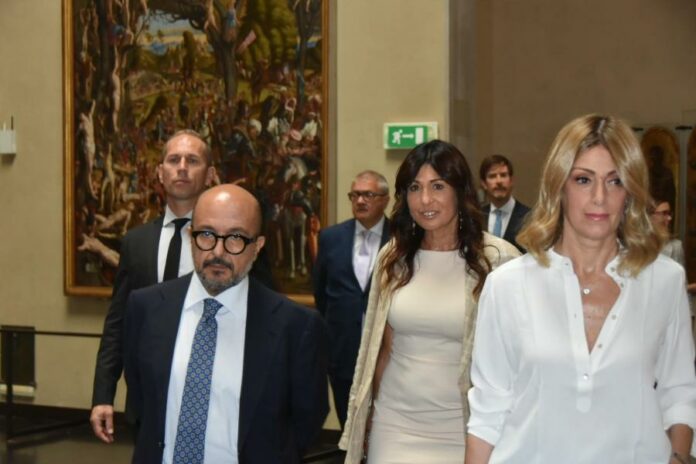Italian Culture Minister Gennaro Sangiuliano faces mounting pressure as he defends himself against accusations involving former advisor Maria Rosaria Boccia. Sangiuliano asserts that no state funds were spent on Boccia, even for a coffee, and denies any dangerous access to confidential documents, including those related to the G7 Culture summit. He insists that his version of events, detailed in a letter to La Stampa, is accurate and describes the situation as an “undeniable media storm,” where distinguishing fake news from reality has become challenging.
Boccia, who claims that a promise was not fulfilled, has openly challenged Sangiuliano and Prime Minister Giorgia Meloni. She criticized Meloni for failing to acknowledge her by name and continues to refute Sangiuliano’s statements. Boccia argues that the minister’s responses are inadequate and suggests that the situation may lead to his resignation.
Boccia accuses Sangiuliano of misrepresenting the facts, particularly regarding the costs of her travels. She asserts that she never paid for any expenses, as the Ministry of Culture supposedly reimbursed such costs. Boccia also questions Sangiuliano’s claim that she did not participate in operational meetings related to the G7, hinting at a possible cover-up involving the minister’s wife.
The conflict extends to allegations of potential damage to public finances and misuse of sensitive information. Sangiuliano’s recent statement denies any financial misconduct or threat to the G7’s security, which is now in jeopardy of losing its key event: the Pompeii archaeological site visit.
Opposition parties are calling for a thorough investigation and have requested that both the Prime Minister and the Minister provide explanations in Parliament. Irene Manzi from the Democratic Party criticized the government’s handling of the situation and demanded clarity on whether Boccia had access to confidential information and why Sangiuliano requested increased security without clear justification.
Boccia has publicly refuted the media’s portrayal of her as a “fashion influencer” and “aspiring collaborator,” demanding apologies from journalists and asking them to refrain from visiting her family’s businesses. Her social media posts highlight her frustration and seek to clear her name from accusations.
In a related issue, the Italian fashion industry is also involved, with the president of the Camera Nazionale della Moda Italiana (CNMI), Carlo Capasa, issuing a cease and desist order against Boccia. Capasa clarified that the “Milano Fashion Week” trademark belongs exclusively to the CNMI and should not be used by anyone else, urging for the removal of Boccia’s claims from social media.
As the controversy unfolds, it remains to be seen how this complex situation will impact the upcoming G7 Culture summit and the political landscape in Italy.

